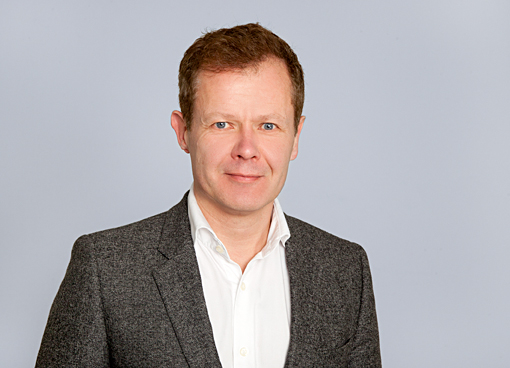East-Lake Institute for Social Advancement and Oslo Metropolitan University will – in collaboration with public sector agencies, disabled people’s organisations, and international scholars in disability law and policy – facilitate knowledge transfer and policy learning to build public sector capacity in China central for the development and implementation of national policies that will reduce poverty and social inequality, and foster social resilience among persons with disabilities.
中国武汉东湖公益服务中心(原东湖社会发展研究院)及挪威奥斯陆城市大学将携手政府服务机构、残疾人组织及残障法律政策研究学者,通过国际间知识转移和政策交流学习,帮助提升中国中部地区公共服务部门的政策实施能力,使国家在残疾人扶贫、促进社会公平和培养社会抗逆力等方面的政策在基层得到有效落实。
Overall Objective and Target Group/项目总体目标及覆盖对象
The project will facilitate knowledge transfer and policy learning to build public sector competence and capacity in China central for the development and implementation of national policies that will reduce poverty and social inequality, and secure the rights and opportunities for full and effective participation by persons with disabilities.
The main target groups are Chinese service providers and other public sector officials, disabled people’s organisations and disability policy experts involved in the deliberation and implementation of welfare policies to reduce poverty and social inequalities for persons with disabilities, including many elderly persons.
The project has already recruited several stakeholders/associated partners in China and Norway. An international advisory committee will provide expert advice on how China may use the UN CRPD as a compass to achieve SDG 1 (reduce poverty) and 10 (reduce social inequalities).
通过中挪合作框架下的知识转移和政策学习,本项目将致力于提高中国中部地区公共服务机构在落实国家关于残疾人减贫、促进社会公平、残疾人权益保障和社会参与等方面的残障政策的能力。项目主要针对参与协商、制定和实施上述残障政策的学者专家、公共服务机构和残疾人组织。目前,本项目已与来自中国和挪威多家相关机构达成合作协议,将成立一支国际顾问团队,以联合国《残疾人公约》为指导方针,为中方提供切实可行的指导方案,助力中部地区实现联合国可持续发展目标计划(SDG)所提出的“无贫困”及“减少不公平”目标。
Description of the project/项目简介
President Xi Jinping has noted that “in the comprehensive construction of a moderately prosperous society by 2020, not a single person with disabilities can be left behind” (CRPD/C/CHN/2-3). The proposed Sino-Norwegian partnership will explore options to enhance the social resilience of Chinese citizens with disabilities – i.e. the capacity of persons with disabilities, including many elderly persons, to sustain and advance their well-being and participate as full and effective members of society.
Since its adoption of UN CRPD in 2008, China has produced a new system of laws aimed at protecting the rights of persons with disabilities. Since 2010, China has implemented two national five-year plans for persons with disabilities. Key priorities under the Thirteenth Five-Year Plan (2016-2020) have included efforts to reduce the risk of poverty and bringing moderate prosperity to persons with disabilities, fostering accessible housing, transport and information, production of assistive technology, and employment opportunities. Labour market participation is key to reduce poverty among persons with disabilities in China. “The Global assistive technology initiative” has been a priority both for China and WHO. Regional authorities such as Shenzhen and Shanghai are aiming to become more accessible cities.
Therefore, DISABILITY RESILIENCE will address three thematic priorities: social resilience through 1) policies to foster labour market participation, 2) development and provision of assistive technology, and 3) accessibility regulation of information and communication technology. These are policy areas where OsloMet and Norwegian stakeholders have unique and sought after expertise: 1) Norway is among the European countries with the largest investments in social benefits in cash and in kind to reduce poverty and foster labour market inclusion of persons with disabilities; 2) Norway is often claimed to have one of the most extensive systems for distribution of assistive technology in the world, and capacity building for provision of assistive technology has been a priority area for the Norwegian development cooperation agency NORAD (e.g. through participation in the ATscale Global Partnership for Assistive Technology; and 3) In the last decade, Norway has adopted unique legislation to promote ICT. Technical cooperation with partner countries in areas where Norway has relevant and sought-after expertise is a key element in Norwegian development policy, and a means to realise the national objectives of contributing to the achievement of the SDGs and promoting human rights. Welfare policy and the Nordic model is a major research area in Norway and at OsloMet, and has been a long-standing thematic priority in Sino-Norwegian research collaboration. The DISABILITY RESILIENCE project will draw on this academic expertise, as well as practical experience with the development and implementation of disability policy in Norway, to build public sector capacity in China central for reducing inequality (SDG 10) and poverty (SDG 1), and safeguarding the rights and opportunities for full and effective participation in all aspects of society by persons with disabilities.
Building on cooperation since 2016, the DISABILITY RESILIENCE project provides a stepping stone for the development of close, long-term Sino-Norwegian cooperation on disability policy as well as joint research applications to national and international funding sources.
中国国家主席习近平指出“2020年全面建成小康社会,残疾人一个也不能少”。改革开放以来,中国在各领域发展成果显著。基本健全残疾人社会保障制度、完善残疾人公共服务体系、帮助残疾人共享改革开放发展成果已成为“十三五”期间残疾人工作的主要目标。而恢复、维持和增强残疾人身体、心理及社会功能是促进残疾人积极加入发展成果分享的关键。在中挪合作关系的建立下,本项目将致力于探索更多的可行方案,以增强残疾人的社会抗逆能力,帮助残疾人改善身体素质、充分且有效地参与社会生活。
自2008年联合国《残疾人公约》在中国的正式生效,中国不断完善相关法律体系,为残疾人各项权益保障提供法律基础。同时签署各项文件,如“残疾人事业发展五年规划”等,明确残障事业发展方针及目标,出台一系列残障政策措施。“十三五”期间,中国将残疾人事业发展重心放在残疾人减贫、加快实现残疾人小康、进一步推进无障碍建设及促进残疾人就业等方面。帮助残疾人进入劳动力市场是中国实现残疾人减贫的关键。发展残疾辅助技术已成为中国政府及世界卫生组织在促进残疾人事业发展中的优先考量之一。无障碍理念开始引领中国城市建设规划潮流。一些地区,如上海、深圳等,已成为建设无障碍城市的先行者。
因此, 结合当前中国残障政策发展重点,本项目将从三个方面来探索实现残疾人抗逆力的可能性:就业促进政策;残疾辅助技术的发展与提供;无障碍信息通信技术等领域的立法。而在这三方面,奥斯陆城市大学及挪方合作伙伴拥有独特且精深的专业知识可供借鉴。第一,在欧洲范围内,挪威实现了在社会保障及公共服务领域最大程度的政府投入,以减少残疾人群贫困、促进劳动力市场对残疾人的接纳;第二,在全球范围内,挪威被视为拥有最全面的残疾辅助技术分配系统的国家之一。同时,在辅助技术提供方面的能力建设已成为挪威政府近些年来的工作重点;除此之外,挪威政府已有相对完善且独特的法律体系来保障及促进无障碍信息交流等方面的建设与改造。在这些自身拥有专业知识可供分享、丰富实践经验可供参考借鉴的领域,挪威始终向他国敞开合作的大门。事实上,在国际社会积极加入并推动技术性合作一直是挪威国家发展的重点之一,也是挪威在国家层面助力实现联合国可持续发展目标、人权保障的重要措施。
本项目的启动将意义深远——不仅有助于中国中部地区公共服务提供者的服务能力提升,助力社会减少残疾人群贫困与不公、保障其各项权益、促进社会参与,同时也将进一步丰富挪威在残障政策发展和实施领域注入学术知识和实践经验。
Project Management/项目主要成员

Rune Halvorsen
Project Leader
Wanhong Zhang
Project Coordinator
Peng Ding
Project Coordinator
Siri Aanestad
Project Advisor
Anthony Giannoum
Project Advisor
Biao He
Research Assistant
